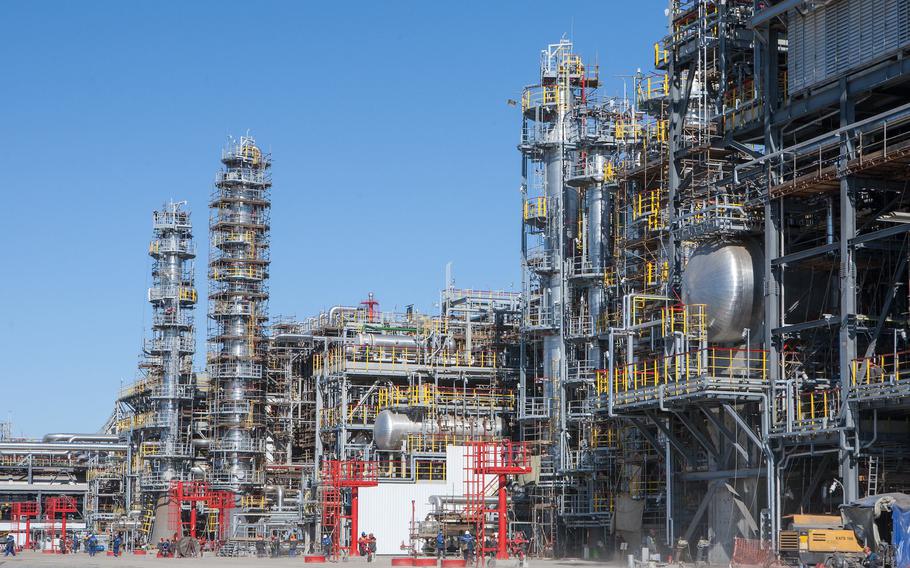Ukrainian drones struck more Russian oil and gas facilities, the latest in a near-daily series of attacks meant to hurt Moscow’s war effort.
The drones hit Lukoil PJSC’s Volgograd refinery, which was last targeted on Jan. 31, regional governor Andrey Bocharov said, according to the Telegram account of his administration. “As a result of the falling debris, topical non-spreading fires broke out on the site of an oil refinery, which were quickly localized,” he said.
With the third anniversary of the invasion approaching, Russia’s oil facilities have been targeted regularly by Ukraine in an apparent attempt to curtail fuel supplies to the military. While the strikes have so far had limited effect on Russia’s ability to process crude, their frequency creates a new risks for a key industry in the country. Moscow’s forces have also been hitting Ukraine’s energy infrastructure regularly since the start of the war, causing massive blackouts.
The Volgograd refinery — one of the biggest oil-processing facilities in Russia — produces almost 300,000 barrels a day. Currently, most of the gasoline it produces and a large part of the diesel is used domestically.
Several parts of the facility were damaged, including two primary crude-processing units, according to an official in Ukraine’s state security service which was involved in the strike. Lukoil didn’t immediately respond to an emailed request for a comment. The extent of damage at the Volgograd facility couldn’t be verified independently.
Gazprom facility
In Russia’s Astrakhan region, Ukrainian drones attacked several sites, including Gazprom PJSC’s gas-processing plant, the press office of regional governor Igor Babushkin said in a statement on its Telegram account.
The facility can process as much as 12 billion cubic meters a year of natural gas and a light oil called condensate into diesel, gasoline and a range of petrochemical products. After having received advance warning about the drone attacks the facility halted operations, allowing it to prevent emissions and damage hazardous chemical units, the governor said in a Telegram statement after visiting the facility.
Gazprom’s Astrakhan plant is examining now the extent of the damage to the combined stable condensate processing unit, a company’s manager said, according to the video posted on Babushkin’s telegram channel. The fire at the facility was localized, his press office said in a separate statement.
Gazprom did not immediately respond to an emailed request for a comment.
©2025 Bloomberg L.P.
Visit bloomberg.com.
Distributed by Tribune Content Agency, LLC.

Lukoil PJSC’s Volgograd, Russia, refinery in 2016. (Lukoil Facebook)